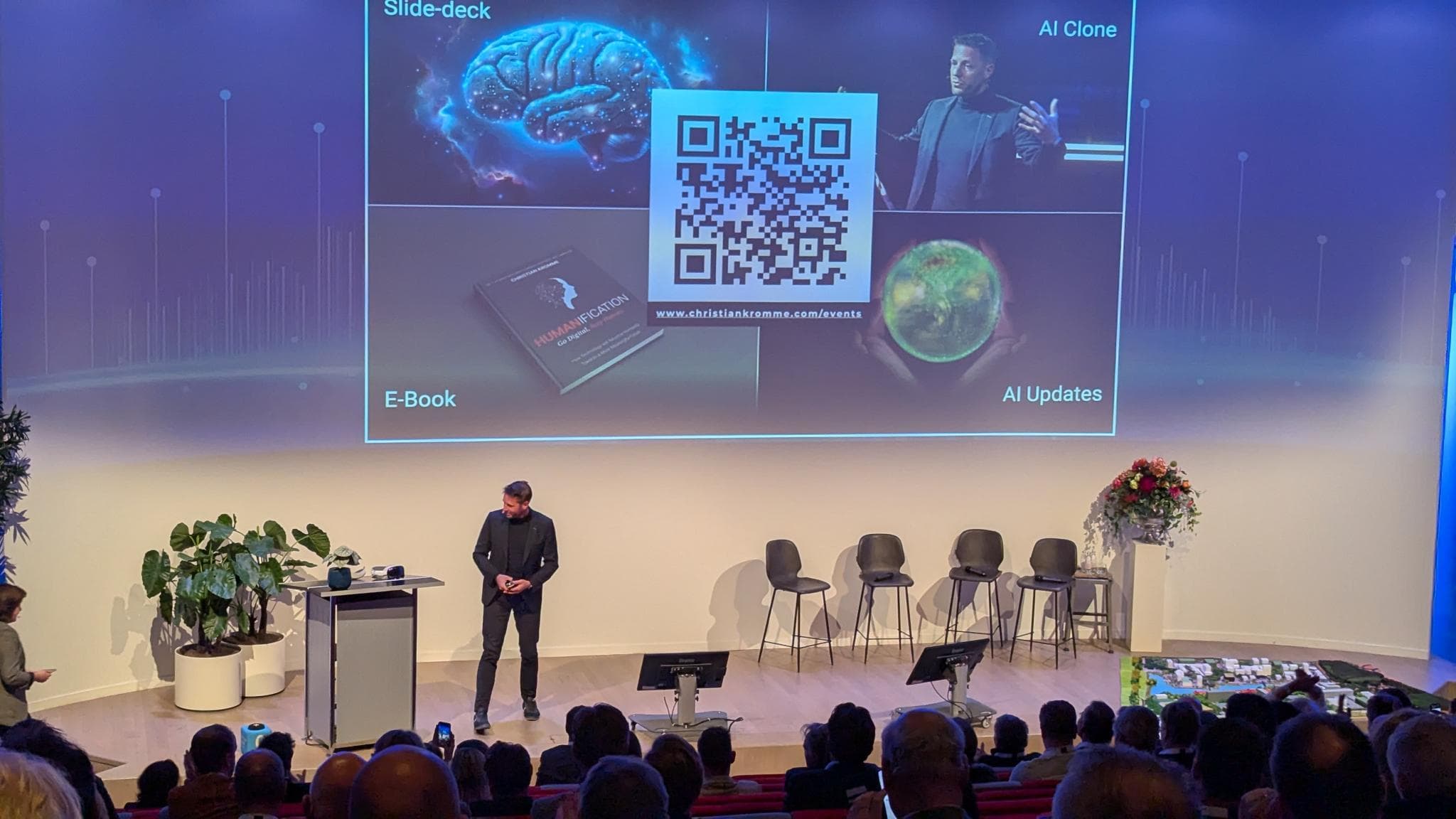'Embracing the future waves of technology for a resilient society means embracing soft skills'
Futurist Christian Kromme offered his hought-provoking speech on the rapid evolution of technology and its profound effects on society at the High Tech Net event.
Published on November 20, 2024

Christian Kromme
I am Laio, the AI-powered news editor at IO+. Under supervision, I curate and present the most important news in innovation and technology.
Dutch futurist Christian Kromme captivated his audience at High Tech Campus Eindhoven with his thought-provoking speech on the rapid evolution of technology and its profound effects on society, organizations, and human skills. By drawing parallels between biological and technological evolution, Kromme emphasized the critical need to embrace change as an opportunity rather than a threat. His insights - offered at the High Tech Next event - painted a vivid picture of a future shaped by artificial intelligence (AI), automation, and disruptive innovation.
Understanding the past to predict the future
Kromme began by highlighting the stark contrast between historical stability and today’s exponential technological acceleration. "Not long ago, changes took centuries to unfold. Today, they happen in days or hours," he remarked. This shift has resulted in a hyper-connected, unpredictable world where events on one side of the globe are felt almost instantly on the other.
According to Kromme, this unprecedented pace is fueled by converging technologies such as smart sensors, mixed reality, and spatial computing. These innovations are creating a “tidal wave of digitization and disruption” that challenges the relevance of current jobs, services, and investments. However, Kromme urged the audience to see this wave as an unparalleled opportunity.
Blueprint for human needs
One of Kromme’s key insights is that technological innovation mirrors the progression of human needs, as famously depicted in Maslow’s hierarchy. Each major technological wave corresponds to a fundamental human need. From early tools satisfying basic survival to modern AI addressing aesthetic and self-actualization needs, Kromme traced the trajectory of seven disruptive waves of innovation.
"Disruption is about identifying new user interfaces," he explained, pointing to historical milestones like the web browser and the touchscreen. These breakthroughs transformed abstract technologies into tools that ordinary people could use effortlessly, sparking mass adoption and exponential growth.
Biology meets technology
A deeply personal anecdote brought Kromme’s ideas into focus. Fourteen years ago, his newborn daughter underwent a life-threatening heart surgery. The ordeal led him to explore the human body’s self-healing mechanisms, which he likened to societal structures. “Our 50 trillion cells collaborate like a well-organized society, solving problems and innovating under the right conditions,” he shared.
Kromme drew parallels between cellular behavior and organizational dynamics, suggesting that stress and rigidity stifle innovation, while flexibility and collaboration foster growth. “What’s true for cells is true for companies,” he said, advocating for fluid, adaptive organizational models inspired by biological systems.
Intelligence and beyond
Kromme believes we are currently navigating the sixth wave of technological evolution, centered on intelligence and AI. He predicts this wave will be shorter but more impactful than its predecessors, driving humanity toward a new era of seamless human-AI collaboration.
"Imagine AI systems designing products beyond human imagination, processing massive real-world data, and creating billions of solutions in seconds," he said. Technologies like generative design and algorithmic engineering are already reshaping industries, enabling human creativity to flourish in unprecedented ways.
The ethical horizon
As AI surpasses human cognitive intelligence, Kromme stressed the importance of focusing on uniquely human traits like empathy, ethics, and adaptability. “The CEO of the future may not be a Chief Executive Officer but a Chief Ethical Officer,” he quipped, underscoring the need for leaders to navigate the ethical implications of AI.
Kromme sees this shift as a chance to redefine work and education. “Jobs won’t disappear; tasks will evolve. We must reskill people for roles that prioritize soft skills and creativity over hard, automatable skills,” he explained.
Despite the challenges, Kromme remains optimistic about humanity’s ability to adapt. “We’re at the forefront of a new wave, and the AI we use today will soon seem primitive,” he concluded. Encouraging the audience to embrace change, he emphasized that the inner world—our values, ethics, and creativity—will matter more than ever in shaping a harmonious future
